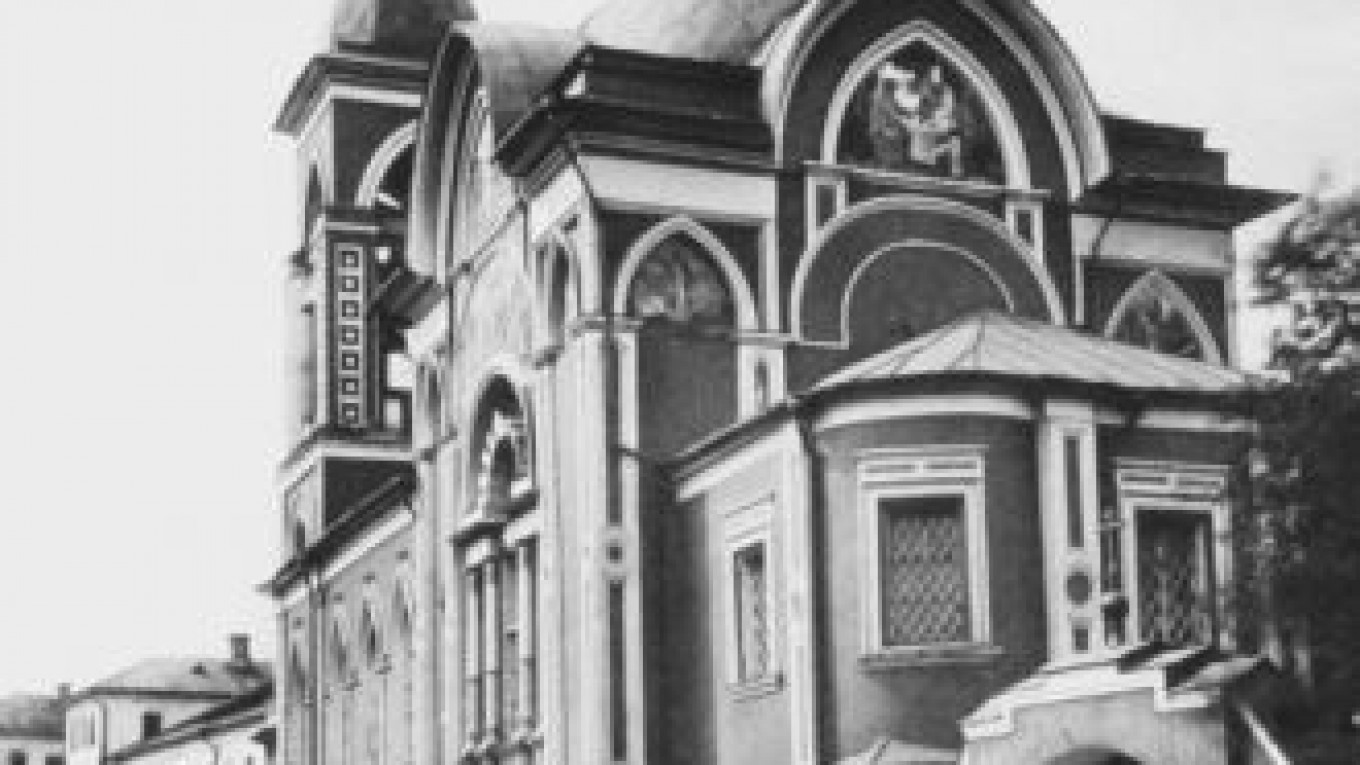One of the oldest neighborhoods in the capital and the original home of the Romanov family, Zaryadye has undergone many changes over its history, which stretches back more than eight centuries. A new exhibit at the Museum of Moscow examines the many faces of Zaryadye, from its medieval prosperity to the current empty construction site and future park.
"Zaryadye is a region in the center of the city known to every Muscovite: It would seem that the streets here are well-worn in every direction, and everyone knows the sights here from childhood," says the Museum of Moscow in a written statement about the exhibit.
The exhibit takes a thorough look at the history of Zaryadye from its earliest days, moving through layers of history chronologically and also highlighting some little known peculiarities of the neighborhood.
The first several rooms of the large exhibit are largely devoted to archaeological findings and diorama, which show the development of the neighborhood within the Kitai-Gorod walls. Old footwear and clothing from this period highlight how differently Muscovites lived in those far-off days, while an interactive portion of the exhibit allows views to experience archaeological work for themselves.
The exhibit highlights aspects of the neighborhood like the presence of the English Court, the first residence of the English embassy to Muscovy, constructed in 1556. Excerpts from the ambassadors' writings and examples of clothing that they wore are included in this section. The exhibit also includes a section on Zaryadye's role as a Jewish neighborhood, though this is rather lacking substance, including only a few letters and documents.
The later phases of the exhibit are mainly photographic, first showing images of the dense courtyards and residential buildings of the 1920s and '30s and then the demolition of the neighborhood and scenes from the Rossiya Hotel. Items from the Rossiya Hotel are shown, including uniforms worn by the hotel band and cutlery from the dining room, allowing one to envision what life must have been like in the world's largest hotel.
Finally, a series of computer screens shows alternate plans for the planned park, the future of Zaryadye. By focusing intently on the history of this one neighborhood, the exhibit creates a microcosm of Moscow, showing the many phases of the city through this one small patch of land.
The exhibit "Zaryadye: From the Past to the Future" will be on display until Jan. 15 at the Museum of Moscow, 2 Zubovsky Bulvar, entrance from Ostozhenka. Metro Park Kultury. 499-766-4196.
Contact the author at g.golubock@imedia.ru
A Message from The Moscow Times:
Dear readers,
We are facing unprecedented challenges. Russia's Prosecutor General's Office has designated The Moscow Times as an "undesirable" organization, criminalizing our work and putting our staff at risk of prosecution. This follows our earlier unjust labeling as a "foreign agent."
These actions are direct attempts to silence independent journalism in Russia. The authorities claim our work "discredits the decisions of the Russian leadership." We see things differently: we strive to provide accurate, unbiased reporting on Russia.
We, the journalists of The Moscow Times, refuse to be silenced. But to continue our work, we need your help.
Your support, no matter how small, makes a world of difference. If you can, please support us monthly starting from just $2. It's quick to set up, and every contribution makes a significant impact.
By supporting The Moscow Times, you're defending open, independent journalism in the face of repression. Thank you for standing with us.
Remind me later.






